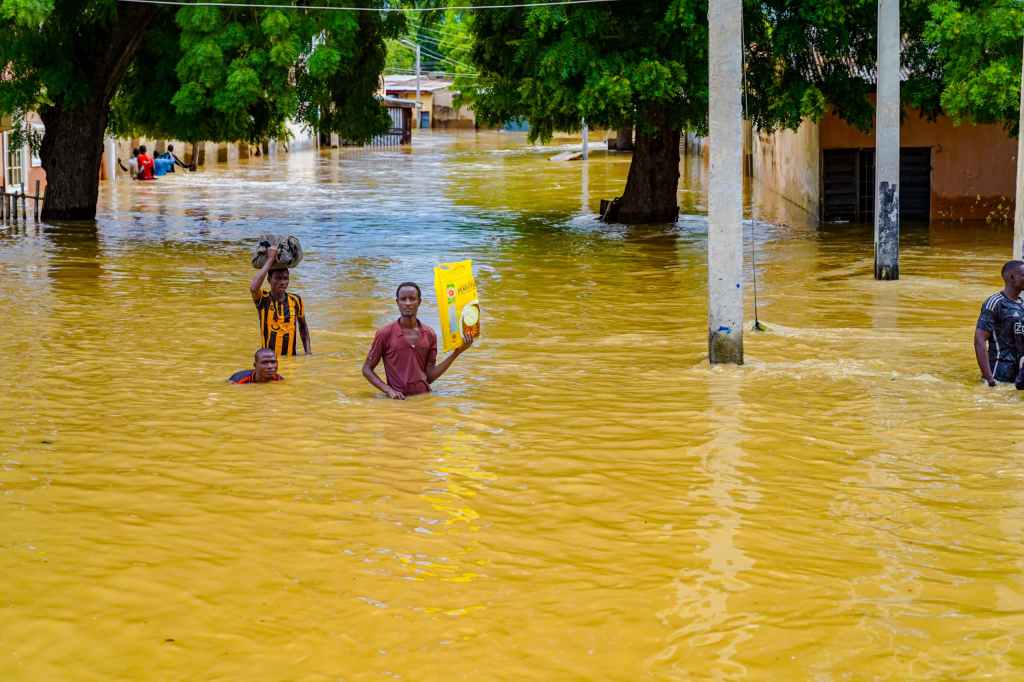According to Nigeria Hydrological Services Agency flooding is expected to hit thirty states and the Federal Capital Territory in this year.
This forecast put more than one thousand and two hundred communities at high risk of devastation, while one hundred and eighty-seven communities in two hundred and ninety-three Local Government Areas, across thirty-one states and the FCT are projected to face moderate flood risk.
The Minister of Water Resources and Sanitation, Joseph Utsev disclosed that coastal and riverine flooding would be experienced in some parts of the South-South geopolitical zone of the country due to a rise in sea level
Over the years, flooding has continued to claim lives and prosperity .in various parts of the country despite the annual warnings by weather agencies and experts.
The Nigerian Meteorological Agency and the Nigeria Hydrological Services Agency at the beginning of every year warn flood -prone states, communities and riverine areas of the impending floods and how they would mitigate its effects and prevent loss of lives and prosperity. Flooding is a global environmental hazard that needs appropriate measures to be instituted to stem the tide of occurrence.
Flooding is caused by natural and human activities including excessive rainfall, terrain and nature of soils, poor environmental planning and monitoring, housing development in flood prone areas, deforestation, haphazard developments resulting to blockage of drains, poor waste disposal practices, as well as poor environmental planning and weak enforcement of policies.
The rapid population growth, increasing urbanisation and poor physical planning are prompting people to build on flood prone areas including river banks, drainages and waterways.
Again, Poor solid waste management also contribute to the problem of flooding as some people use drainage systems as dump sites thereby blocking free flow of water.
In a larger scale, the release of excess water from the Lagdo Dam in Cameroon, often contributes to flooding in Nigeria with devastating effects.
Flooding often has adverse consequences on the environment, affect human lives in various ways including human health, economic activities, infrastructure and sources of livelihood. It can lead to loss of lives, emotional and psychological distress, and destruction of property, social amenities and infrastructure.
Since flooding occurs annually and early warnings are often given by the weather agencies, there should be proper planning to reduce the consequences.
Federal and state governments should ensure strict enforcement of environmental laws to curb indiscriminate dumpling of refuse and other environmental abuses.
Federal government should embark on construction of more dams to take up excess water as well as dredging of some of the major rivers in Nigeria.
There should also be a review of road construction policies to ensure that all road projects have adequate drainage system terminated at proper discharge points.
The tempo of tree planting campaign and grassing of compounds and environs should be sustained and should remain a precondition for developing new structures.
There is also need to ensure strict enforcement of physical planning laws to discouraged discriminate building of houses and other structures as well as increased awareness on need for people to protect the environment.





Be the first to write a comment.